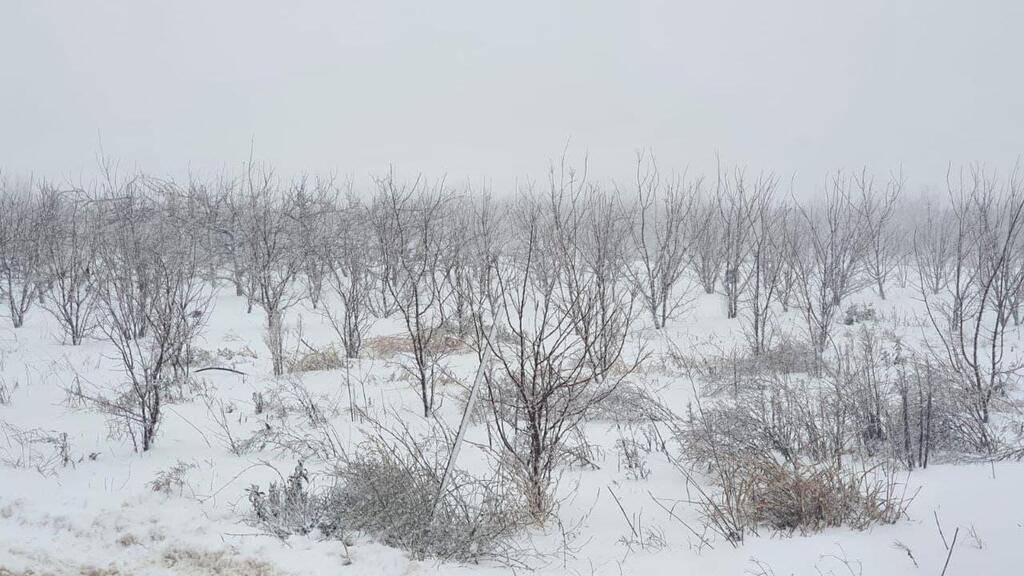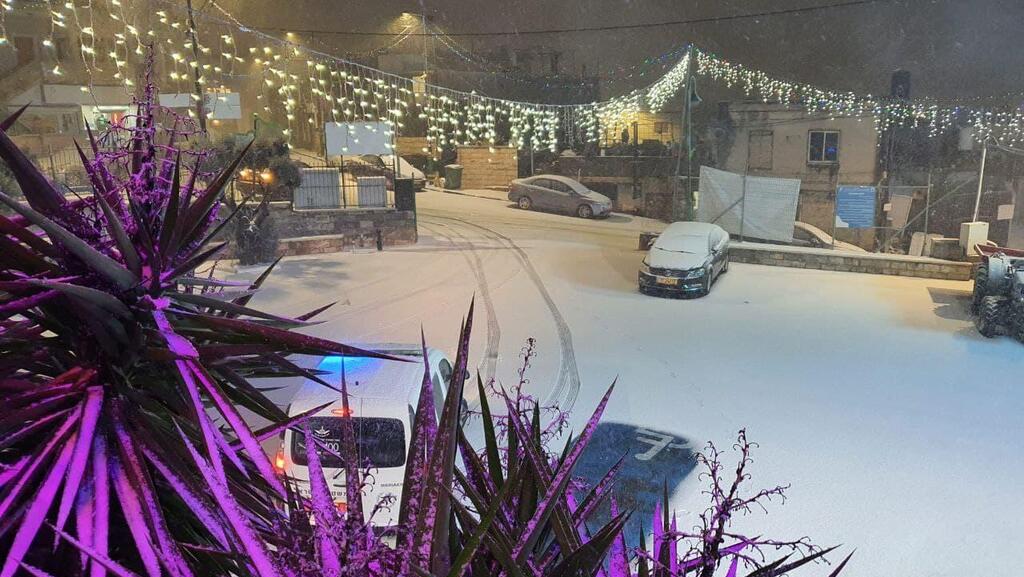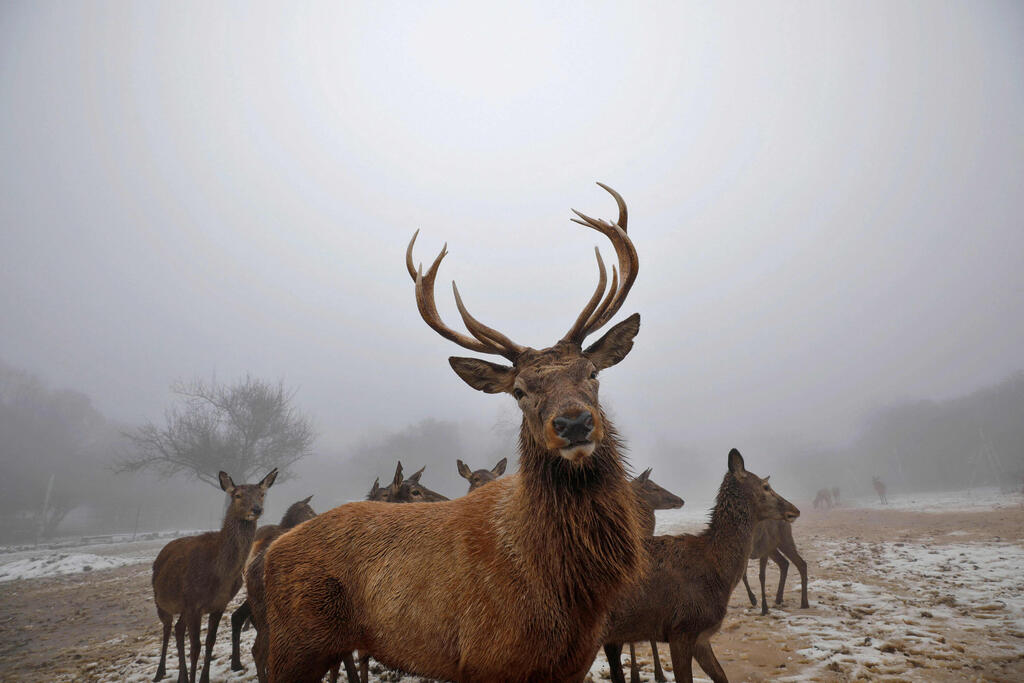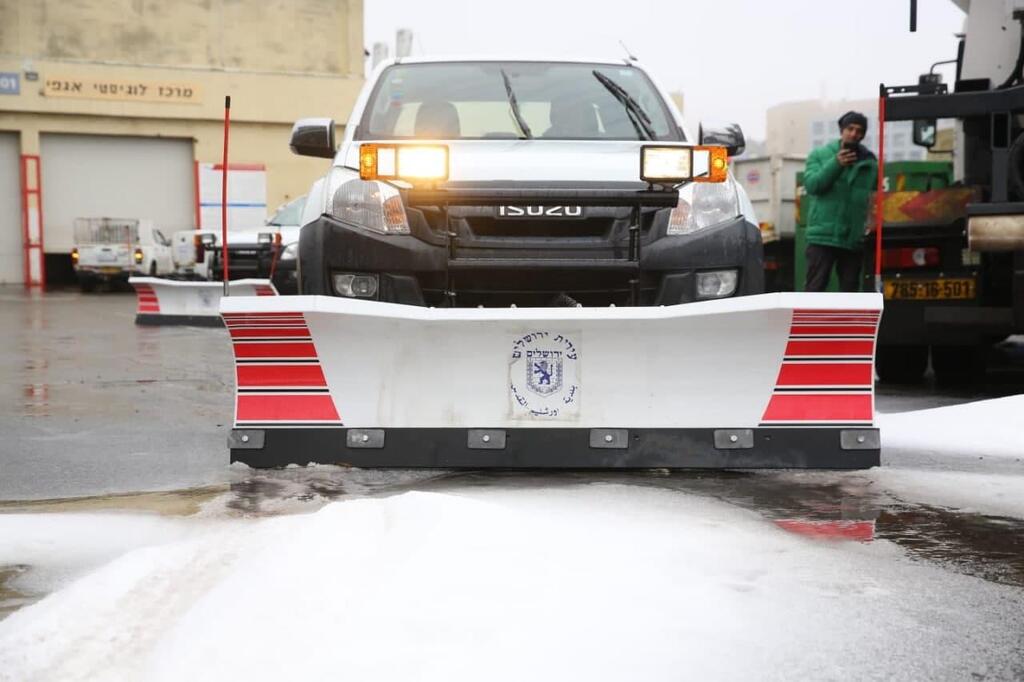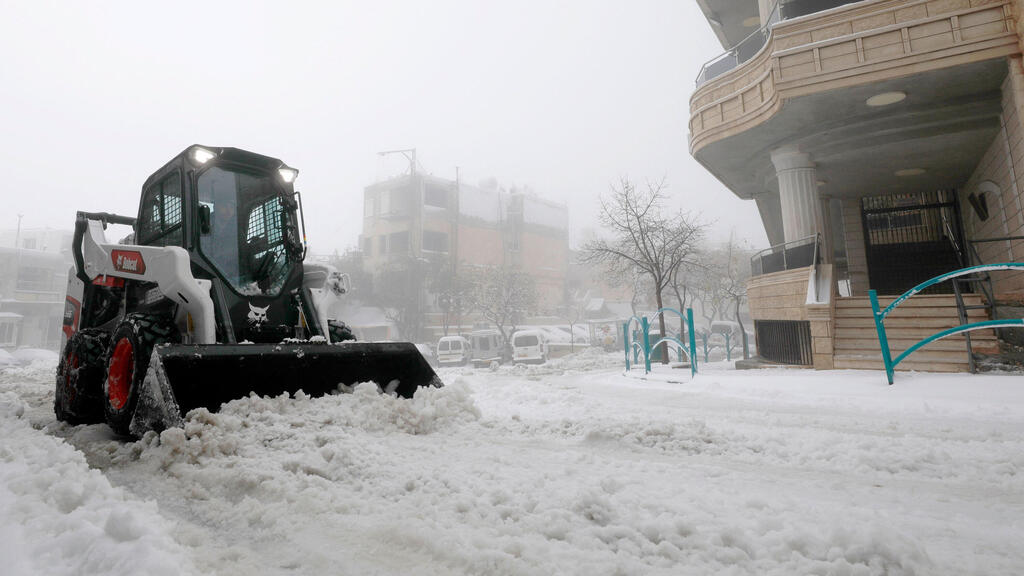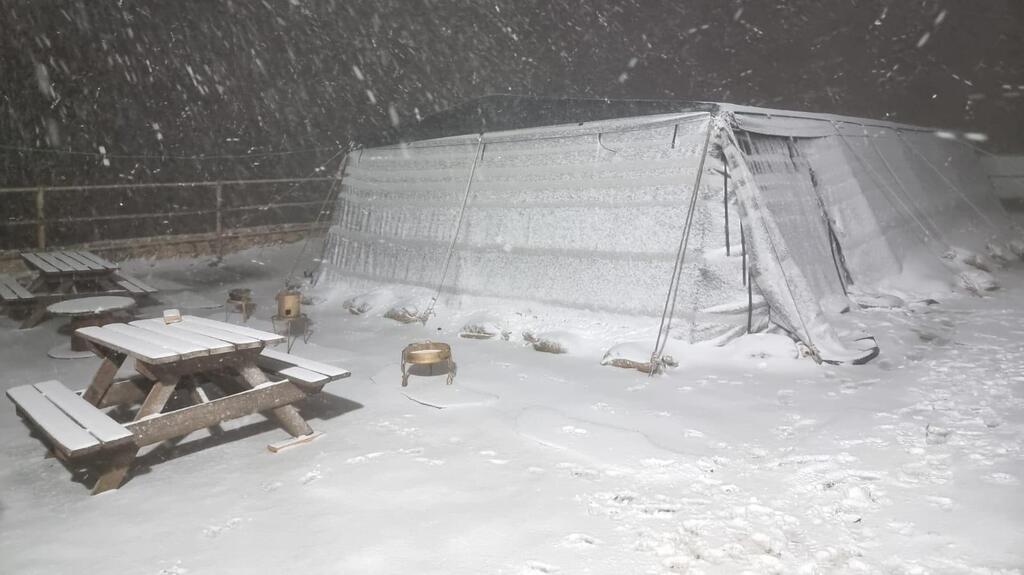Stormy weather in northern Israel left the area of the Golan Heights covered in white on Wednesday, while Jerusalem residents saw a glimpse of this winter season's first snow.
This is the first time this winter that snow fell anywhere in Israel outside of Mount Hermon, where heavy snow has been falling since the morning hours, with 30 centimeters of snow already accumulating at the bottom level of the mountain.
According to Kibbutz El Rom's security coordinator, Moti Piada, a white layer of five to seven centimeters has accumulated in the northern Golan Heights. "Everything is painted white, and it's a great pleasure," Piada said in an interview with Ynet.
Piada also said that they are preparing for more snow during the evening, which is set to last for quite a while. "Temperatures are very low compared to this time of the season's average, and we expect the snow to stay over the weekend."
Along with the pleasure of having snowy weather, the extreme cold also triggers concern about various dangers on the roads. As a result, the police, along with Netivei Israel - a national transport infrastructure company - have been working since the morning to clear the roads so the northern Golan Heights could be accessible to everyone.
Due to the piled-up snow, some roads may remain blocked, and the risk of vehicles swerving off the route is high. Schools in the area, meanwhile, were closed on Wednesday, and they will continue to be shuttered on Thursday as well due to frosty weather.
Kibbutz El Rom
(Video: Amichai Zliger, Ein Zivan tourisim, Raphael Nave, Adi Piada, Uriah Vazana, Israel Nature and Parks Authority, and Mount Hermon site.)
"After evaluating the situation and receiving a recent forecast, we are preparing for increased amounts of snow, heavy fog, and ice along with mud on the roads throughout the Golan Heights," said one local authority in a statement.
The IDF is also prepared for the snowy weather, with engineer officer Lieutenant Colonel Ze'ev Cohen telling Ynet that "the troops are prepared for any scenario, even in challenging weather like this."
The stormy weather is also raising fears that hikers or by-passers will mistakenly enter a landmine zone covered by snow. The Golan Heights has over one million landmines in the area left as a remnant from previous wars.
The IDF, therefore, warned hikers not to cross any fences and pay attention to signs in the area. "If there is any doubt that you mistakenly entered a landmine zone - stand still, and call for help, the IDF will arrive at any location necessary in the area," Cohen said.
Jerusalem, meanwhile, is hopeful the first real snow of the season may hit the area later in the day, however, meteorologists say the chances of it happening are slim.
So far, only light snow mixed with rain fell across the capital, without accumulating on the ground.
Nevertheless, the city prepared itself with dozens of special vehicles, including snowplows and salt-dispersing trucks on the roads.
The predicted temperatures for Wednesday night: Jerusalem 2-6 degrees Celsius, Tel Aviv 10-14, Haifa 8-12, Be'er Sheva 3-12, Lod 8-14, Nazareth 6-11, Safed 1-5, Eilat 7-16, Tiberias 7-14, Cazrin 4-9, Ashdod 7-14, Ramon crater 2-7, and Afula 5-13.
The intense cold is also expected to result in record consumption of electricity in the coming days.
The Israel Electric Corporation said: "As expected, since the beginning of the week, there has been an increase in electricity demand. During Wednesday, a peak consumption of 14,039 megawatts was recorded, and estimations are that during the upcoming night this record will be broken."


